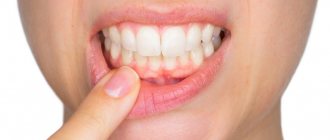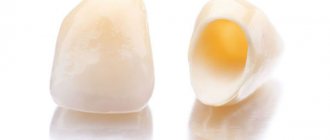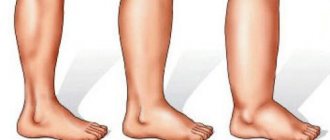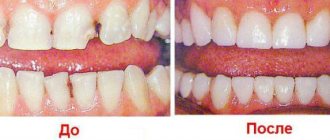Symptoms
Bitterness in the mouth can manifest itself in different ways, for example:
- after overeating and eating certain foods - indicates the reflux of bile into the esophagus and diseases of the bile ducts,
- aftertaste after taking medications means a disruption of the normal microflora, a negative effect on the liver and the destruction of beneficial bacteria,
- after sports training - speaks of liver pathologies.
Bitterness can occur at different times of the day, after physical activity and during the abuse of bad habits. Often the symptom is accompanied by nausea and vomiting, dizziness, heaviness in the side and abdominal pain, white coating on the tongue and a feeling of bloating, heartburn and belching, dry mouth. At the appointment, you need to inform the doctor in detail about each sign.
Diet is a prerequisite for treatment
Diet treatment will help cope with unpleasant sensations in the oral cavity that are not associated with serious illnesses. The first thing to do is review your diet. Not recommended:
- smoked meats;
- pickles;
- fatty, salty foods;
- hot spices;
- spicy vegetables (garlic, radish, horseradish);
- meat;
- fresh baked goods.
It is recommended to drink plenty of fluids (at least 2 liters) throughout the day. It is not necessary to drink only water - herbal decoctions will be more useful for attacks of bitterness. Use elderberry, mint, currants, and rose hips as raw materials.
To prepare the decoction you need to take 100 grams. fruits or leaves of plants, brew them with boiling water (2 l). Place in a water bath and simmer without removing the lid for about a quarter of an hour. Infuse, to obtain a concentrated drink, tightly cover the container with a lid, wrap it warmly, and infuse for half an hour.
It is not necessary to use one type of plant material - you can combine and experiment. Add sugar in minimal quantities to prepared decoctions. It is better not to use honey to improve the taste - the bee product is a strong allergen and can provoke additional manifestations in the form of nausea , irritation, and unpleasant discomfort in the abdominal area.
Which doctor treats bitterness in the mouth?
First of all, bitterness in the mouth is considered as a symptom of gastroenterological disorders, so when the first signs appear, you need to make an appointment with a gastroenterologist.
To make an appointment with a doctor, choose any method:
- call the clinic +7 (495) 103-99-55,
- order a call back,
- leave a request for an appointment using a convenient form on the website:
Often people do not pay attention to bitterness in the mouth, explaining the occurrence of the symptom with overeating, an uncomfortable position in bed and some other reasons.
IMPORTANT! Rarely does anyone think that bitterness in the mouth is a signal indicating the development of serious pathology of the liver and gastrointestinal tract.
If you have been experiencing this symptom for a long time, do not engage in self-diagnosis and self-medication - make an appointment with a specialist at the Kuntsevo Treatment and Rehabilitation Center! An experienced gastroenterologist will collect anamnesis, complaints, conduct an objective examination, and refer you for laboratory and instrumental diagnostics to understand the cause of the pathology.
SIGN UP
Treatment
Treatment should be comprehensive and include measures to normalize lifestyle, diet and diet, as well as drug therapy. If possible, eliminate physical and emotional stress that negatively affects the motility of the gastrointestinal tract. Long breaks in meals, consumption of fatty, extractive foods, marinades, smoked meats, and coffee are unacceptable. Avoid smoking, drinking alcohol and carbonated drinks. Drug therapy is selected by a gastroenterologist depending on the severity of symptoms and examination results.
Duodenogastric reflux, or the reflux of duodenal contents back into the stomach, is an extremely common digestive disorder. The symptoms that indicate this pathology are subjectively interpreted by many as “heartburn” or “indigestion,” which indicates their low specificity. An accurate diagnosis can only be made by a specialist after a thorough examination. If you experience discomfort associated with eating, we recommend that you contact Professor Gorbakov’s Clinic for specialized help.
Normally, food enters the oral cavity, moves down the esophagus into the stomach, and then enters the duodenum. Here it mixes with bile, which ensures the emulsification (breakdown) of fats and the absorption of most of the nutrients. The unilateral evacuation of food into the duodenum is supported by the reflexive opening and closing of the pyloric sphincter (pylorus). It also prevents retrograde (backward) flow of the bolus.
Improper functioning of the sphincter (its insufficient locking), as well as hypertension in the duodenum associated with chronic duodenitis, can cause bile to flow back into the stomach - duodenogastric reflux.
Often this disorder provokes the presence of inflammatory processes in the stomach (gastritis), duodenum (duodenitis), gallbladder (cholecystitis, biliary dyskinesia), pancreas (pancreatitis), and surgical interventions, namely:
- cholecystectomy;
- gastric resection;
- vagotomy;
- gastroenterostomy;
- enterostomy.
Treatment methods
Basically, the treatment of bitterness in the mouth comes down to taking medications. The specialist selects complex therapy based on the results of tests and instrumental examinations. The gastroenterologist identifies one of three problems:
- Liver disorders. Means are prescribed to stabilize the operation of the “filter”,
- Digestive tract dysfunction. Drugs that affect the digestive system normalize the work
- Uncontrolled bile production. Eliminated by drugs that affect the level of secretion, for example, anticholinergics.
Foods that may cause a bitter taste in your mouth
A good place to start is to take stock of what you've recently eaten. Some foods cause a bitter aftertaste:
- Pine nuts;
- Fatty meats;
- Strong coffee or tea;
- St. John's wort decoction;
- Pasta;
- Sea buckthorn oil;
- Alcohol.
Typically, a bitter taste occurs immediately after eating or after several hours. Bitterness in the mouth can also be caused by taking certain medications - antibiotics, antiallergic drugs, blood pressure medications, and others.
What to do
- It is necessary to avoid “bitter” foods or not eat them before bed.
- Diversify the menu with fruits, especially citrus fruits.
- Add buckwheat porridge to the list of dishes.
- If the bitterness is caused by taking pills, it disappears a few days after the end of treatment.
Why do we need to treat bitterness in the mouth?
Since an unpleasant taste in the mouth is a symptom of some pathology, a comprehensive examination is needed, without which it is impossible to establish a diagnosis. Our clinic has the latest equipment for ultrasound diagnostics of the liver and gallbladder, gastroscopy, etc., which help identify the pathological process in a short time. Our own laboratory allows you to get test results within a few hours. It is the quick examination process that attracts many Moscow residents to our clinic, as well as experienced, qualified staff ready to help every patient.
2. Reasons
Even a non-specialist in the vast majority of cases associates a bitter taste in the mouth with a pathological state of the digestive system, more precisely, the liver and/or biliary tract. Indeed, the biochemical and physiological evolution of higher mammals has led to a strange paradox. As you know, bile produced by the liver is absolutely necessary for the digestion of food, be it the simplest food or exquisite delicacies. But at the same time, bile itself has a sharp unpleasant odor and an unbearably bitter taste, so normally it goes directly into the intestines (starting from the duodenum) and does not come into contact with the taste buds of the oral cavity. However, in a number of abnormal or clearly pathological conditions and processes, bile stagnates, is thrown into the stomach and esophagus, its taste is felt in the mouth - in a word, that same bitterness appears. In some cases, this may be associated with the consumption of too fatty foods or simply with banal overeating (the bitterness disappears as the body copes with the overload), in others it serves as one of the diagnostically significant signs of a serious gastroenterological disease. Thus, the most likely groups of causes of bitterness in the mouth are:
- diseases and any congestion in the biliary (bile) system, i.e. all kinds of dyskinesias, anomalies or pathologies of the bile ducts, cholelithiasis, pathology of the gallbladder, etc.;
- liver diseases: hepatitis, oncopathology, cirrhosis, etc.;
- diseases of the gastrointestinal tract with reflux syndrome (reflux into the esophagus): gastritis, gastroduodenitis, cancer of the pancreas and other gastrointestinal organs.
However, the above reasons, with all their diversity and, indeed, the greatest probability, do not exhaust the list of possible sources of bitterness in the mouth. You should also add to it:
- allergic reactions (in particular to dental materials);
- chemical intoxication, incl. taking certain groups of medications with hepatotropic side effects;
- inflammatory processes (especially with a purulent component) in the oral cavity;
- the presence of worms;
- endocrine disorders;
- infections;
- dysbacteriosis;
- hormonal changes associated with gestation (pregnancy) or menopause;
- deficiency or imbalance of a number of microelements necessary for the body (B vitamins, zinc, etc.);
- smoking (the more cigarettes smoked per day, the more stable and intense the bitter taste in the mouth and lips), as well as withdrawal symptoms when quitting smoking, which can be controlled with a special diet and vitamin therapy;
- alcohol consumption;
- abnormal mental states (depression, chronic stress, etc.).
Visit our Gastroenterology page
How to improve your oral health
Good hygiene helps get rid of bad breath. If the cause is dense tartar, you need to visit the dentist and remove it mechanically. The toothbrush is powerless in this case.
Any dental defects must be treated. Carious cavities are cleaned and filled, and rotting tooth roots are removed. If necessary, prostheses are installed.
To get rid of the smell, you need to change your toothbrush and choose the right toothpaste. The brush should have medium hardness in order to clean the teeth well and not injure the gums. For better oral hygiene, you can buy a special tongue brush. Toothpaste is chosen based on gum sensitivity and related problems. The dentist will help you choose the product.
To thoroughly clean the spaces between teeth, it is not recommended to use wooden toothpicks. A special thread or brush will do the job better. Some threads contain mint fibers that add a pleasant aroma to your breath. And silver ions will stop the proliferation of pathogenic bacteria.
Teeth should be brushed morning and evening. Before going to bed, after hygiene procedures, you do not need to eat. Leftover food at night will become a breeding ground for the proliferation of microorganisms that damage tooth enamel.
Eliminating other causes of unpleasant odor
It is more difficult to get rid of bad breath that is not related to dentistry. If the cause is metabolic disorders, treatment may take a long time. With diabetes, it is important to achieve stable blood glucose levels. Then the ammonia aroma will not bother you. To do this, patients with type 1 disease carefully select the dosage of insulin, and for type 2 diabetes mellitus, they are prescribed a balanced diet and medications to lower blood glucose.
For those with severe kidney problems, the only way to eliminate the smell of urea is to undergo hemodialysis. This is a method of artificial purification of blood plasma, which helps get rid of metabolic products.
Treatment of tonsillitis and respiratory pathologies is carried out with antibiotics. But with the chronic course of the pathology, this is a long process.
The most common cause of bad breath is improper oral care. By visiting the dentist at least once a year and choosing the right brush, paste and floss, you can avoid the onset of halitosis or treat it at an early stage.
Treatment with apple vinegar
Another traditional treatment method is the use of apple vinegar. It is recommended to use a homemade product - purchased products often contain additives that are harmful to the digestive tract. If you have to use store-bought vinegar, be sure to give preference to expensive, high-quality products.
There is no need to prepare the product - apple vinegar is taken in its pure form, without additives. To get rid of the bitter taste, drink 25 ml of vinegar in the morning, shortly before breakfast, once a day. It is not recommended to exceed the dosage - this can cause discomfort in the abdominal area or lead to bowel problems.
If it is difficult to drink vinegar in its pure form, it is recommended to dilute it with boiled, chilled water (20 ml). Relief occurs immediately, but do not stop the course until the attacks of bitterness are completely eliminated.
A bitter aftertaste in the mouth is not always a signal of a serious illness, but it is better not to start using home remedies recommended by traditional medicine before visiting a doctor. Self-medication leads to dangerous consequences; even gentle herbal remedies can harm the body.
St. John's wort decoction to relieve symptoms
St. John's wort is a plant present in many folk remedies aimed at getting rid of diseases of the digestive tract. The decoction will help cope with the bitter aftertaste in a short time, provided that it is taken regularly and all recommendations are followed.
Preparation:
- Rub with your hands, turning into powder, 50 g. dry grass.
- Bring water (230 ml) to a boil and brew the plant material.
- Leave covered for three hours.
- Filter through 2-3 layers of gauze.
Divide the prepared broth into three parts. Take three times a day, preferably before meals. The course of treatment is three weeks. For prevention, it is recommended to take a break for a month and repeat the course.
Prepare fresh homemade medicine every day - some of the beneficial qualities disappear during storage. St. John's wort is a plant that can cause allergies, so use it with caution and carefully monitor your overall health. If alarming signals appear in the form of stomach upset, skin irritation, nausea or headaches, stop using the decoction and resort to another folk medicine.











